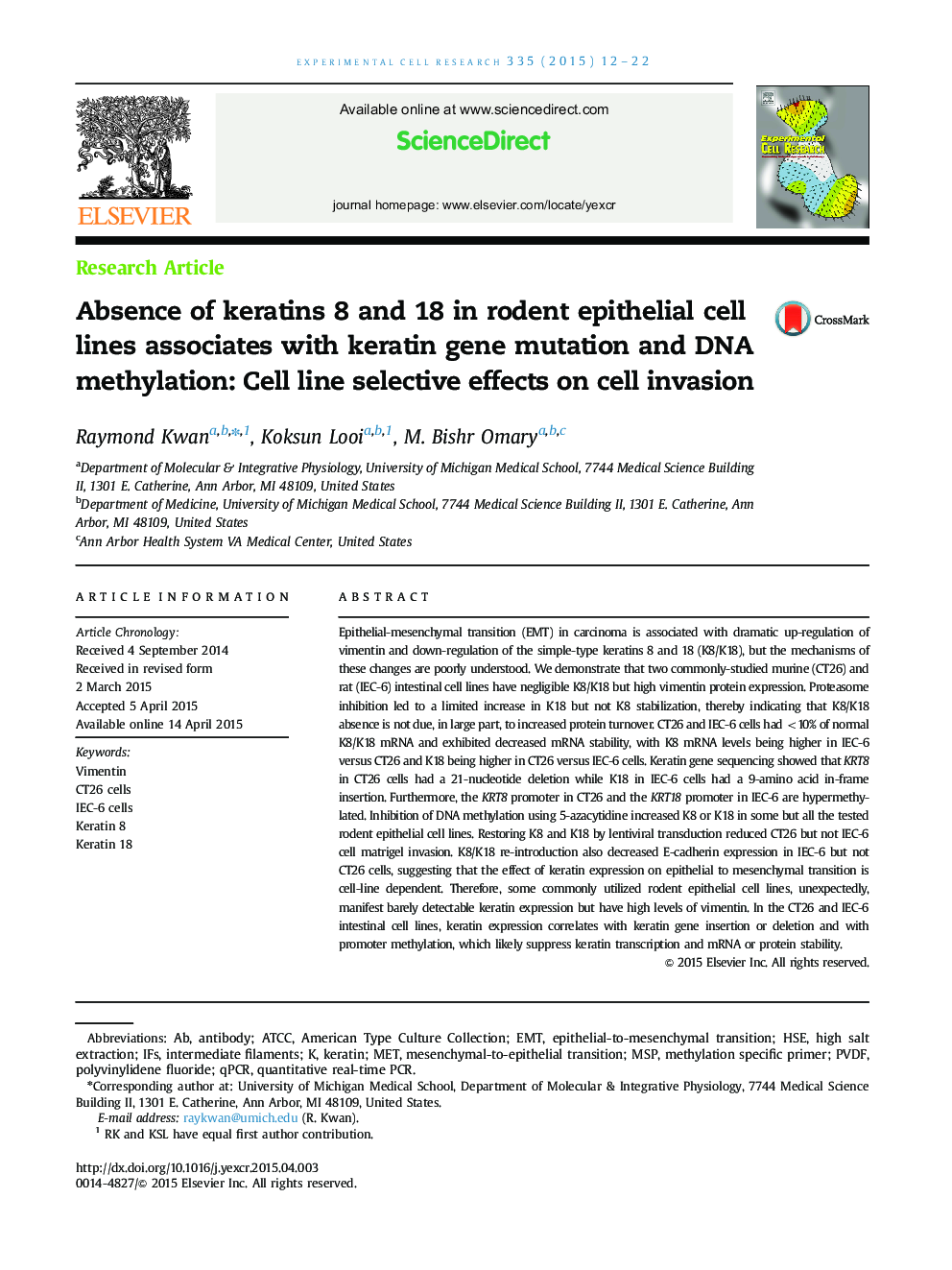| Article ID | Journal | Published Year | Pages | File Type |
|---|---|---|---|---|
| 2130186 | Experimental Cell Research | 2015 | 11 Pages |
•The two commonly used intestinal cell lines, IEC-6 and CT26, lack keratins 8 and 18.•Loss of K8/K18 correlates with changes in gene methylation and mRNA instability.•Reintroduction of K8/K18 in CT26 but not IEC-6 cells inhibits cell invasion in vitro.•Similar findings may occur in other epithelial cell lines that lack keratins.
Epithelial-mesenchymal transition (EMT) in carcinoma is associated with dramatic up-regulation of vimentin and down-regulation of the simple-type keratins 8 and 18 (K8/K18), but the mechanisms of these changes are poorly understood. We demonstrate that two commonly-studied murine (CT26) and rat (IEC-6) intestinal cell lines have negligible K8/K18 but high vimentin protein expression. Proteasome inhibition led to a limited increase in K18 but not K8 stabilization, thereby indicating that K8/K18 absence is not due, in large part, to increased protein turnover. CT26 and IEC-6 cells had <10% of normal K8/K18 mRNA and exhibited decreased mRNA stability, with K8 mRNA levels being higher in IEC-6 versus CT26 and K18 being higher in CT26 versus IEC-6 cells. Keratin gene sequencing showed that KRT8 in CT26 cells had a 21-nucleotide deletion while K18 in IEC-6 cells had a 9-amino acid in-frame insertion. Furthermore, the KRT8 promoter in CT26 and the KRT18 promoter in IEC-6 are hypermethylated. Inhibition of DNA methylation using 5-azacytidine increased K8 or K18 in some but all the tested rodent epithelial cell lines. Restoring K8 and K18 by lentiviral transduction reduced CT26 but not IEC-6 cell matrigel invasion. K8/K18 re-introduction also decreased E-cadherin expression in IEC-6 but not CT26 cells, suggesting that the effect of keratin expression on epithelial to mesenchymal transition is cell-line dependent. Therefore, some commonly utilized rodent epithelial cell lines, unexpectedly, manifest barely detectable keratin expression but have high levels of vimentin. In the CT26 and IEC-6 intestinal cell lines, keratin expression correlates with keratin gene insertion or deletion and with promoter methylation, which likely suppress keratin transcription and mRNA or protein stability.
